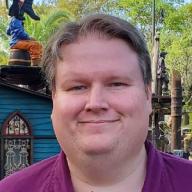Throw Out Your Caller ID
by Scott Hardie on September 6, 2006

I'm all for scientific research into the paranormal, since it will benefit humankind whether the results are affirmative or negative – but apparently it's awfully hard to keep such research scientific. For instance, I never fail to be amused by ghost hunters who claim to have proven a haunting because electromagnetic readings are higher in the area, a phenomenon that has no demonstrated correlation with hauntings. And let's not even get into the ones who claim to have proven a haunting because a "psychic" said they sensed ghosts nearby.
Today's latest example of more scientific than that, but still laughably unreliable. Rupert Sheldrake, a somewhat respected figure in the field (bio), has claimed to have proven that "telephone telepathy" exists. news) That's the phenomenon where you think about someone and then they call you. See the news article for details about his research. There are several big problems with this conclusion:
1) There's no natural spontaneity. The test subjects were made to think of their family & friends and then their family & friends were made to call them. Even if the rest of the research was sound, this would merely mean that it can happen under artificial circumstances.
2) Assuming the family & friends weren't sequestered in a laboratory for days, they were going on about their normal lives. I don't know about you, but I'm close enough to my mother and good friends that I generally know whether they're home or out at a particular time of day. If I had to name four of them and then be told that one would call me, I could pretty easy guess who it is from the time of day. Surely not everyone is like this, but it has to be pretty common.
3) Did Sheldrake have a control group? The article said it was a "controlled" experiment without elaborating. Did he have a second group of test subjects of equal size and have their family & friends call them without telling them to expect a call? I'd bet his results would turn out the same for the control group, but we'll never know I guess.
4) My calculator can't compute the factorials high enough to determine whether his "1,000 billion to 1" claim is correct – anybody else want to take a shot and tell me what you find? – but let's just say I have grave doubts that out of 63 people, 28 choosing the right option out of 4 possible options would amount to probability that extreme. Is it hyperbole?
5) 63 subjects is an awfully small group. Say that psychic powers are real but only a few people have them. What if a disproportionately high number of those people wound up in his study of 63 subjects? Oh, wait, he'd probably claim that the odds of that are 1,000 billion to 1.
6) Let's see a second group produce the same results independently of the first before go making claims of proof, shall we?
What is it about the paranormal as a subject that allows its researchers to get away with such lousy work? If Sheldrake were making such wild claims about a serious subject, he'd be laughed out of his associations. Is the paranormal research community so desperate for credibility that they take claims like his seriously? And if so, what does that say about the validity of any of their work?
Three Replies to Throw Out Your Caller ID

Lori Lancaster | September 6, 2006
[hidden by author request]

Kris Weberg | September 6, 2006
The paranormal gets a pass because people badly want to believe in magic. It's simply the name we give magic in the present world where even a modicum of scientific knowledge puts paid to the idea that velleity affects reality.
Logical Operator
The creator of Funeratic, Scott Hardie, blogs about running this site, losing weight, and other passions including his wife Kelly, his friends, movies, gaming, and Florida. Read more »

DMV Mystery
My last car, a 1996 Mercury, was registered in my mother's name, so every year in December (the month of her birthday), the registration sticker would be delivered to her at her house and she'd have to pass it to me to put on the license plate. No big deal. A few months ago, I bought a 2007 Dodge in my name, though she co-signed the credit application since I had no credit history. Go »
Powerless
Going without electricity in Florida can be a miserable affair. You sweat non-stop. You sleep fitfully at best, waking up in pools of your own body fluid. Go »
Kissingerian
Another of Fareed Zakaria's perfectly lucid articles today, suggesting the only way out of Iraq: (link) Go »
Manly Pastimes
"So what did you do this weekend?" "I went drag racing." "Really? Go »
More Hypocrisy
Well, now that I've written at length on TC about how I consider online videos an unpleasant medium, this is the perfect time to share some! This year's Lazy Sunday might be this SNL bit with Justin Timberlake and Andy Samburg. NSFW. Go »











Anna Gregoline | September 6, 2006
Scott, this bothers me as well, as I have a extremely curious mind towards the paranormal, but I agree - the research and methods are so shoddy! I don't know why this is, and it's hard to wade through all the bullshit to find what might be promising research.
Personally, I believe in a sort of energy field around the earth and through all living things (think of "The Force" if it's helpful), and that when we die, our "life" energy goes back into this field. So I do believe in ghosts in the sense of seeing apparitions, or feeling emotions tied to locations because an energy of what was a person is localized there - but I'm very skeptical of anyone interacting with a ghost (like having a conversation).